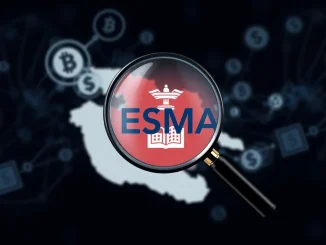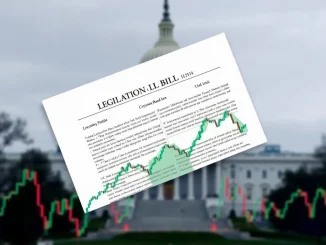
Exciting developments are brewing in Latin America’s crypto landscape! El Salvador, a pioneer in Bitcoin adoption, is joining forces with Paraguay to establish a robust framework for cryptocurrency regulation. This groundbreaking move signals a growing commitment in the region to foster a secure and compliant digital asset ecosystem. Let’s dive into the details of this significant partnership and what it means for the future of crypto in these nations.
Why is Crypto Regulation Collaboration Crucial for El Salvador and Paraguay?
In the rapidly evolving world of digital currencies, collaboration between nations is becoming increasingly vital. For El Salvador and Paraguay, this partnership on crypto regulation offers numerous strategic advantages:
- Shared Expertise and Resources: By pooling their knowledge and resources, both countries can develop more effective regulatory frameworks. El Salvador’s experience as the first nation to adopt Bitcoin as legal tender, combined with Paraguay’s focus on AML, creates a synergistic approach to cryptocurrency regulation.
- Combating Illicit Activities: Cross-border collaboration is essential to tackle illicit activities like money laundering and terrorist financing in the crypto space. This MoU strengthens their ability to jointly address these challenges, ensuring a cleaner and safer crypto environment.
- Attracting Legitimate Investment: A clear and well-defined crypto regulation framework can attract legitimate businesses and investors to both countries. This clarity reduces uncertainty and fosters a more conducive environment for innovation and economic growth in the digital asset sector.
- Regional Harmonization: This agreement could potentially set a precedent for other Latin American nations, encouraging a more harmonized approach to cryptocurrency regulation across the region.
El Salvador and Paraguay: Leading the Charge in Latin American Crypto?
Both El Salvador and Paraguay have shown a proactive stance towards cryptocurrencies. El Salvador famously adopted Bitcoin as legal tender in 2021, making headlines globally. While Paraguay hasn’t gone as far, it has been exploring crypto mining and has shown interest in leveraging blockchain technology. This MoU underscores their commitment to navigating the crypto space responsibly.

The memorandum of understanding (MoU) was signed between El Salvador’s National Commission for Digital Assets (CNAD) and Paraguay’s anti-money laundering agency (SEPRELAD). This formal agreement highlights the specific focus areas of their collaboration:
| Area of Collaboration | Description |
|---|---|
| Cracking Down on Unlicensed Providers | Joint efforts to identify and take action against cryptocurrency service providers operating without proper authorization in either country. |
| Strengthening Anti-Money Laundering (AML) Measures | Sharing best practices and implementing enhanced AML protocols to prevent the misuse of cryptocurrencies for illicit purposes. |
| Information Sharing and Cooperation | Establishing channels for regular communication and information exchange to facilitate effective regulatory oversight and enforcement. |
What are the Potential Benefits of Stronger AML Measures in Crypto?
Strengthening AML measures within the cryptocurrency sector is not just about compliance; it unlocks a range of benefits for the broader ecosystem and society:
- Increased Trust and Adoption: Robust AML measures build trust in cryptocurrencies, making them more appealing for mainstream adoption by individuals and institutions.
- Reduced Risk of Financial Crime: By deterring money laundering and other financial crimes, stronger AML measures contribute to a more stable and secure financial system overall.
- Protection for Users: Effective AML frameworks can help protect users from scams, fraud, and other illicit activities often associated with unregulated crypto spaces.
- Sustainable Growth of the Crypto Industry: A compliant and secure crypto industry is more likely to experience sustainable growth and attract long-term investment.
Cryptocurrency Regulation: A Global Trend?
The collaboration between El Salvador and Paraguay mirrors a growing global trend towards cryptocurrency regulation. As digital assets become more integrated into the financial system, governments worldwide are recognizing the need for clear rules and oversight. This trend is driven by factors such as:
- Financial Stability Concerns: Regulators are keen to manage potential risks that cryptocurrencies could pose to financial stability.
- Investor Protection: Ensuring adequate protection for investors in the volatile crypto market is a key priority for many governments.
- Tax Compliance: Governments are seeking to ensure that crypto transactions are subject to appropriate taxation.
- Technological Advancement: The rapid evolution of cryptocurrency and blockchain technology necessitates adaptive and forward-looking regulatory approaches.
Looking Ahead: The Future of Crypto Regulation in Latin America
The MoU between El Salvador and Paraguay is a significant step forward for cryptocurrency regulation in Latin America. It demonstrates a proactive approach to fostering innovation while mitigating risks. As these nations work together to implement this agreement, the crypto world will be watching closely. Will this partnership inspire other countries in the region to follow suit? Only time will tell, but one thing is clear: the regulatory landscape for cryptocurrencies is evolving rapidly, and collaboration is key to navigating this exciting new frontier.
Key Takeaways:
- El Salvador and Paraguay have signed an MoU to collaborate on crypto regulation.
- The focus is on cracking down on unlicensed providers and strengthening AML measures.
- This partnership aims to create a safer and more compliant crypto environment.
- It reflects a global trend towards increased cryptocurrency regulation.
- This collaboration could set a precedent for regional harmonization in Latin America.



